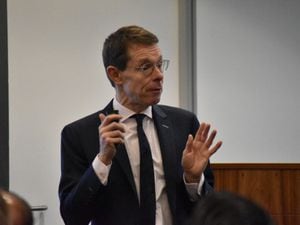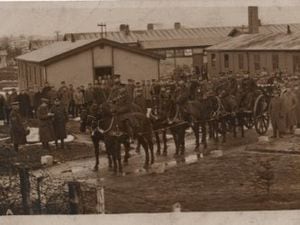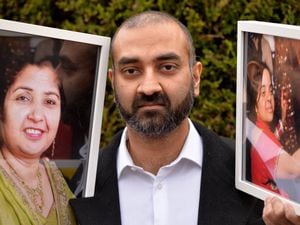West Midlands tier three talks inevitable if Covid cases continue to rise, says mayor Andy Street
Talks over moving the West Midlands into tier three lockdown restrictions will take place in the coming weeks if Covid cases continue to climb, the region's mayor has said.

Andy Street said ministers were not currently considering tightening measures in the West Midlands, due to case numbers rising more slowly than in other parts of the country.
But following a phone call with Health Secretary Matt Hancock, he warned that a continued rise in cases would lead to discussions with ministers over placing the region under the "very high" alert level.
Sandwell, Walsall, Wolverhampton, Birmingham and Solihull are currently under tier two restrictions, which bans groups of six people not from the same household gathering anywhere apart from outdoors or in private gardens.
Dudley and Staffordshire are in tier one, although both areas could be moved up a level in the coming weeks.
More Covid-19 coverage:
Ministers have announced that Greater Manchester will be placed in tier three from Friday, with South Yorkshire following on Saturday after a spike in Covid cases. Both areas have infection rates far higher than the West Midlands.
Mr Street said the region must maintain its current position "for as long as possible" so as to "help protect people's lives and livelihoods".
He added: "However, our case numbers are rising - albeit more slowly than in other parts of the country - and if they continue to rise in the coming weeks then naturally we will have to begin the dialogue with government about whether a move into the 'very high' level of restrictions is appropriate."
The mayor also addressed the need for extra financial support, following an ongoing row between Westminster and politicians in the North West over the same issue.
Agree
He said he would not accept "a public, drawn-out negotiation with government over what support is required", adding that if the region moved into tier three, it would have "a serious public health situation" on its hands meaning a response "could not be delayed".
He said his aim was to agree support measures with local council leaders and ministers "well in advance" of any move into tier three.
Mr Street also said he was continuing to "keep up the pressure" on the Government regarding extra support for businesses struggling under tier two restrictions, such as those in hospitality and live events.
"Whilst further Government support is clearly needed, there is no substitute for brining the numbers of cases down," he said.
"In order to do this every single person must play their part by strictly following the guidelines."
Birmingham's director of public health, Dr Justin Varney, said it was a matter of "when rather than if" the city gets placed under tier three restrictions.
He said he was seeing a "steady climb" in cases, but that restrictions in the city on household mixing "do look like they have slowed the speed of climb".
Rushed
On the likelihood of tougher measures, he said: "I think it's when rather than if. It does seem the only way is up at the moment, but we are going much more slowly.
"It's kind of like Birmingham's taking its own sweet time to climb the stairs and areas like Manchester and Blackpool just rushed on up straight past."
Dr Varney said he felt a "circuit breaker" lockdown - which has been proposed by Labour leader Sir Keir Starmer - would need to run for at least three weeks for it to be effective.
Under tier three measures, pubs and bars which do not serve substantial meals must close, while there are also further restrictions on households mixing.
Local leaders in South Yorkshire have agreed to a financial package of £41m, including £30m for businesses and £11m for councils to support public health measures including contact tracing.
Greater Manchester has been given £60m in support after Mayor Andy Burnham and nine other leaders in the North West initially demanded £90m.
In the seven days to October 16 the rate of infection in Birmingham was 219.7 per 100,000 people.
It was 192.3 in Walsall, 169.9 in South Staffordshire, 169 in Wolverhampton, 188.8 in Sandwell, 159.5 in Stafford, and 135.9 in Dudley.
Nottingham had the highest rate in the country at 672.





